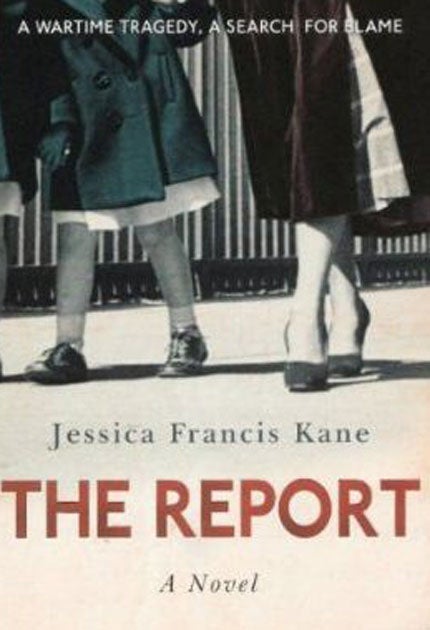The Report, By Jessica Francis Kane
A wartime tragedy revisited

Your support helps us to tell the story
From reproductive rights to climate change to Big Tech, The Independent is on the ground when the story is developing. Whether it's investigating the financials of Elon Musk's pro-Trump PAC or producing our latest documentary, 'The A Word', which shines a light on the American women fighting for reproductive rights, we know how important it is to parse out the facts from the messaging.
At such a critical moment in US history, we need reporters on the ground. Your donation allows us to keep sending journalists to speak to both sides of the story.
The Independent is trusted by Americans across the entire political spectrum. And unlike many other quality news outlets, we choose not to lock Americans out of our reporting and analysis with paywalls. We believe quality journalism should be available to everyone, paid for by those who can afford it.
Your support makes all the difference.Jessica Francis Kane begins her novel with the preface of The 9/11 Commission Report: "We want to note what we have done, and not done." Her story focuses on another human tragedy, in the East End of London on 3 March 1943, when 173 residents of Bethnal Green rushing into the tube station-turned-air-raid shelter were suffocated in a Hillsborough-like crush. It was the biggest civilian disaster during the Second World War; no bombs were dropped on Bethnal Green that night. A private investigation into the incident conducted by a magistrate, Laurence Dunne, was commissioned but suppressed by the government until after the war.
Kane's debut novel shows that the handling of a public disaster is burdened by its own politics, so that reporting its causes and effects is never entirely objective nor comprehensive. Those who commission the investigation require certain questions to be answered and, often, others to be left alone. So it was in the case of the Bethnal Green disaster, according to Kane's fiction. The events are revisited by a film-maker, Paul Barber, whose adoptive family was involved and who three decades later begins to unravel what the report left out, and why.
Kane's strengths lie in her tidy, well-made plot, and her theme of anti-Jewish prejudice triggered by the disaster. Simmering tensions between the local community and immigrant Jews are heightened after rumours spread that the crush was a result of "Jewish panic". An angry public is hungry for blame: "You want someone to admit responsibility, someone held accountable."
It is a courageous venture for an American author to write about a British, Blitz-based tragedy. Kane gets it right for the most part, Cockney slang included, with very few slips, although a character jarringly retires to a "den" at one point. Yet the emotional impact of the disaster remains maddeningly distant.
There are some powerful testimonies from witnesses, survivors (including the guilt-ridden), those who lost their loved ones among the 84 women, 27 men and 62 children found "suffocated in a heap". There are moving details – of mothers seconds from death managing to pass their babies across the crowd to safety – but not nearly enough. Even central characters remain at a remove, so that one almost wishes for more flashbacks, however lazy a literary device this may be, to lend greater emotional depth to a truly bizarre and horrifying story.
Join our commenting forum
Join thought-provoking conversations, follow other Independent readers and see their replies
Comments